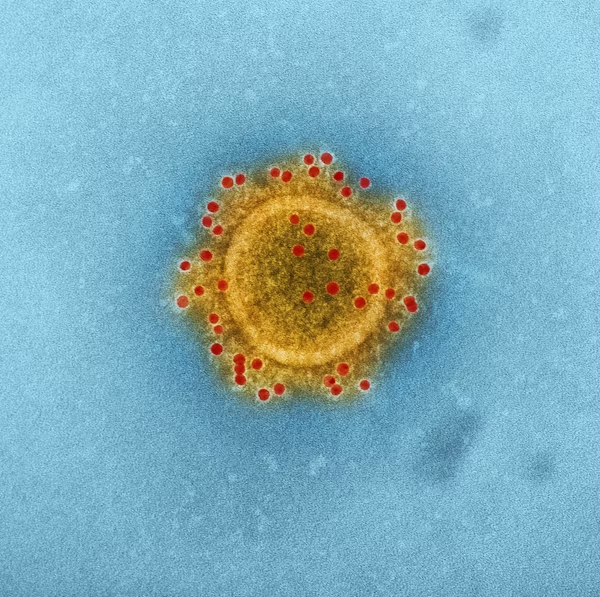Eczema Through the Eyes of Science and Suffering: What Your Skin Is Trying to Tell You
If you live with eczema, you know it’s more than “just dry skin.” It’s a relentless cycle of flare-ups, itching, and emotional distress. But beneath the visible inflammation lies something deeper: a powerful and complex interaction between your eczema and immune system.

In 2025, science is clearer than ever on one truth—eczema is not simply a skin-deep condition. It is a reflection of what’s happening inside your body, especially in your immune system. This article explores the science of eczema, what your immune response is doing during flares, and how your skin might be trying to communicate that something needs rebalancing—internally and externally.
Eczema and the Immune System: The Missing Link
Eczema—clinically known as atopic dermatitis—is a chronic inflammatory skin disease. It’s triggered by a combination of genetic predisposition, environmental exposure, skin barrier dysfunction, and most importantly, immune dysregulation.
At its core, eczema reflects an overactive immune system that responds aggressively to harmless stimuli. Instead of protecting you, it mistakenly attacks your skin barrier, causing redness, swelling, itching, and a breakdown of the protective outer layer.
An NIH article emphasized that the immune dysfunction in eczema primarily involves type 2 helper T cells (Th2 cells), which produce interleukins like IL-4, IL-13, and IL-31, leading to itch and inflammation (source).
The Science of a Flare-Up: What’s Actually Happening?
During an eczema flare, your immune system behaves like it’s fighting an infection—even when there’s no threat present. Here’s what happens beneath the surface:
- Trigger exposure: Your skin is exposed to allergens (like dust mites, pollen, or stress-related hormones).
- Barrier breakdown: A defective skin barrier allows irritants and pathogens to penetrate more easily.
- Immune overreaction: Th2 cells activate, releasing inflammatory cytokines.
- Itch-scratch cycle begins: IL-31 stimulates nerve endings, causing intense itching.
- Skin damage worsens: Scratching leads to further barrier damage, increasing infection risk.
This internal immune chaos is why eczema is not just a dermatological condition—it’s an immunological disorder with dermatological symptoms.
Genetics, Environment, and the Immune Code
Many eczema sufferers carry mutations in the filaggrin gene (FLG), which codes for a protein critical to maintaining skin barrier integrity. Without it, skin becomes dry, fragile, and susceptible to immune activation.
Moreover, modern environments—with harsh soaps, urban pollutants, and excessive hygiene—exacerbate immune sensitization. This is known as the “hygiene hypothesis”, where the immune system, lacking proper microbial exposure in childhood, becomes prone to allergic responses later in life.
The Emotional Toll: Why Eczema Hurts Inside and Out
The link between eczema and mental health is well-documented. Chronic inflammation, sleep disruption, and visible skin damage often lead to anxiety, depression, and social withdrawal.
A 2011 study in Journal of The European Academy of Dermatology and Venereology found that adults with moderate-to-severe eczema had a 2.5x higher likelihood of reporting depressive symptoms, largely due to the psychological strain of constant itching and body image issues.
If your eczema feels like it’s impacting your emotional health, know that it’s not “just in your head.” Your immune system and brain are intimately connected through cytokines and stress hormones—so treating both is crucial.
Listening to Your Skin: What Eczema Might Be Telling You
Your body often speaks through the skin before anything else. Here’s what a flare-up may be trying to tell you:
- “I’m overreacting to something.” – Perhaps a new soap, detergent, or even stress hormone spike.
- “My barrier is broken.” – Dry, cracked skin is not just surface damage; it’s a cry for hydration and repair.
- “My immune system is inflamed.” – You may need more than moisturizers—targeted immune therapy could help.
“I need consistency.” – Eczema thrives on routine disruption. Your skin wants daily care, not reactive treatment.
A New Era in Treatment: Healing from the Inside Out
Modern eczema care is now evolving to treat the immune dysfunction, not just the flare symptoms. Here are some of the most promising tools in 2025:
Biologic Therapies
Medications like dupilumab (Dupixent) and tralokinumab target interleukins involved in immune dysfunction, offering long-term relief for moderate-to-severe cases.
Microbiome-Based Therapies
Topical probiotics and microbiome sprays (like Roseomonas mucosa) are now in late-stage trials for reducing inflammation by restoring healthy skin flora.
Digital Health Tools
Apps and wearables now allow patients to track flares, identify triggers, and receive real-time treatment guidance through teledermatology platforms.
Barrier-Focused Skincare
Science-backed, fragrance-free products like NellaDerm’s eczema collection help maintain skin integrity while reducing irritation—an essential daily defense.
Q&A: The Immune System and Eczema Explained
Q1: Is eczema an autoimmune disease?
Not exactly. Eczema is an immune-mediated condition, meaning it involves an overactive immune response, but it’s not classified as autoimmune because the immune system doesn’t attack your own cells directly—it overreacts to external triggers.
Q2: Can improving gut health help eczema?
Emerging research suggests that gut microbiome health can influence skin immunity. Probiotics and prebiotics may support immune regulation, though more clinical trials are needed for firm conclusions.
Q3: What role does stress play in eczema flares?
Stress increases cortisol, which temporarily suppresses the immune system, then leads to a rebound effect where inflammation spikes—often worsening eczema.
Final Thoughts: Skin, Immunity, and the Call to Listen
Eczema is more than a rash—it’s your immune system’s language. When you scratch, flare, or weep, your skin may be begging for internal healing as much as external care. Understanding the link between eczema and immune system function is the first step toward lasting relief.
With science-backed skincare like NellaDerm’s eczema-friendly line and support from your dermatologist, you can listen to what your body is telling you—and respond with compassion, consistency, and confidence.
Our Promise to You
We’re confident our products will transform your skin—but if you’re not completely satisfied, we’ve got your back. Simple as that. Try our products risk-free for 30 days. If you don’t love your results, reach out to our care team and we’ll make it right with a full refund. No questions asked, no complicated returns process. Because everyone deserves skincare that works.

